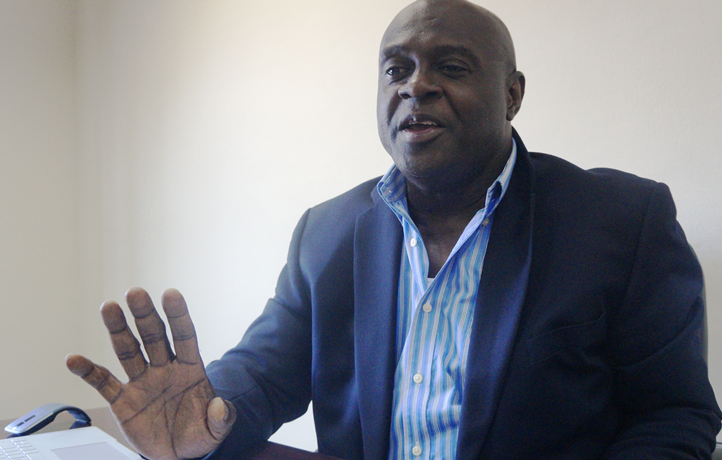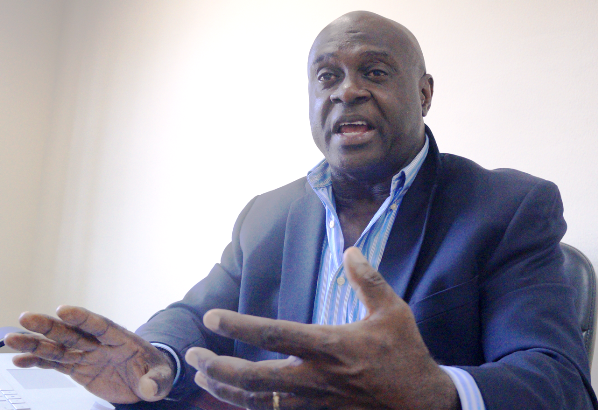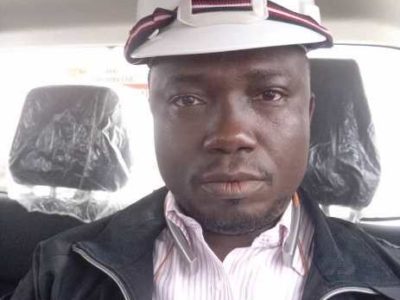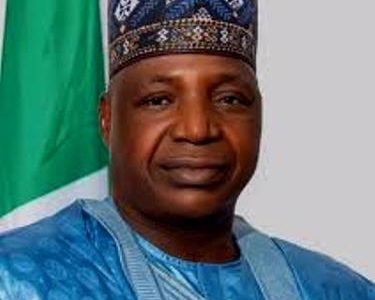Known as the “Father of Nigerian Internet,” Elder Chima Onyekwere is the founder of Linkserve, an internet service provider (ISP) that first deployed dial-up technology over 22 years ago to deliver internet services to Nigerians before GSM and CDMA came into play. In this interview, he shares insight on how effective policy can drive digital transformation in the country. Onyekwere who is vying for the senatorial seat in Abia Central Constituency in Abia State in next year’s elections also asserts that only right politics can alter the nation’s development health. He says his political ambition is inspired by the need to improve the enterprise-space including getting strong policy thrusts for small and medium enterprises (SMEs). He shares with IT Edge News, Oluwatobi Opusunju and Chinedu James in Lagos.
As Nigeria’s pioneer ISP, describe your growth curve and challenges in over 22 years of operation?
The dynamics has changed therefore the industry has also changed. Linkserve used dial-up primarily to deliver internet and the dial-up is a telephone line. The market has grown to something much more aggressive and sophisticated using GSM or CDMA technology to deliver data. The internet as an independent solution is not a viable option at all. It was viable then because it was a new innovation and the telecoms companies did not recognize it as a platform they could play in. They saw it purely as an added value service. Yes, it is still an added value service but now it has imbibed with the present phone protocol, the Signaling System No. 7 (SS7) or internet protocol (IP), Voice over Internet Protocol (VoIP) in its delivery. Because today you are delivering phone calls through data or IP protocol rather than SS7 or any of those other earlier algorithms for voice.
“Folks like us desire political opportunity to bring to place those policies that will make enterprises thrive.”
Today, if you look at internet or ISP as an isolated business, it’s not a viable option. It has to be based on something and it has to work in collaboration with something. It is not a good solution on its own. It is a good solution when added to some other applications or added to some other service deliveries. So Linkserve has evolved from being an ordinary dial-up operator to being a solution provider for enterprise. Because the market has aggressively changed, we need to focus on a niche rather than focus on a broader niche. We have taken a much narrower niche to deliver services and we are focused to grow in that area where content is involved. That is a niche that is much more viable.
So ISPs have naturally moved into something else. They have moved into content development and other kind of services to provide unique solutions which a typical ISP will not be able to do. If a typical ISP engages to do so, it will have to reinvent itself to do that. The GSM operators will not be able to do that effectively because that kind of niche is not the type that will attract the kind of volume they will be interested in.
“My desire is not to go to the senate and …make money for myself. My desire is to go to the senate and bring about policies that can improve entrepreneurs or enterprises in our country.”
Has Nigeria internet space grown significantly since Linkserve launched the dial-up services or has the space been plagued by inconsistencies?
Oh yes, it has grown! Remember that this is a service we provided and it was seen as an espionage. I was arrested and detained in 1997 and my business was shut down. But 21 years now, the internet is everywhere; data is everywhere. Data has become what is not just for browsing for news and information anymore, but a tool for enterprise, workers, the banking industry, etc. It is affecting every area of our lives. Now, scale that up another 10 years, you will be addressing artificial intelligence and it’s just going to continue growing. So it’s an area where technology is advancing at a geometric rate and it’s going up more than 200 percent every month. The Nigerian internet market has exploded and will continue to grow.
Internet of things (IoT) is becoming common place in certain areas and homes for instance. Certain businesses are embracing IoT or internet of everything (IoE) as a matter of fact and that simply means that you are using IP to drive whatever you are doing —your microwave, gas cooker, TV, electric bill, etc. Everything basically is being driven by IP and that is wonderful. Because there is going to be cheaper cost when all these things are happening, I envisage that the cost of a data enabled phone will continue to drop in a geometric form; it will be cheaper than a bottle of water very soon. Because cost of producing chips are dropping and with artificial intelligence embedded in several technologies today, it will become even cheaper.

Onyekwere:“Let merit be the order of the day; let merit be our driving motive, you can’t fault merit; you can’t fault excellence and development.”
How can we end the challenges facing the sector such as RoW and multiple taxation to engender growth?
I am interested in politics and one of the reasons is not only for government policy change but to ensure policies that will encourage enterprise are improved on. There are laws that will encourage enterprise and they need to be strengthened and enforceable. If we take a conscious effort to change the way we do business in Nigeria, improve the ease of doing business through legislation, we can expect that a lot more enterprise will come into play. If you use the government resources to develop a funding agency that can fund small businesses where we develop our own content, whether it is in data or whatever and young people can engage profitably in business, it’s bound to impact on the economy. All of these will play a role to improve the daily living of our people. The so called middle class has been totally eroded. It’s either you are extremely very rich or extremely very poor. If you are in between, you are probably just struggling at the lower end. Government policies today are not friendly. These policies need to be tweaked. People in the assembly earn so much money, yet the average folk earn little. My desire is not to go to the senate and control money or make money for myself. My desire is to go to the senate and bring about policies that can improve entrepreneurs or enterprises in our country.
“There is no senator today that has held a public forum to discuss issues concerning Nigeria. Why can’t they do that… when we say we are in a democracy? Why is an assembly member not doing that even in his own state?
Having been an entrepreneur myself for several years now, it is embarrassing to find out that it is difficult for any young person to grow a business that can match Bill Gates.’ What is in our policy system to develop entrepreneurs? Absolutely nothing! The policy in this country is so flawed that as an entrepreneur you have to know someone in a powerful position before you can break even. It’s just a terrible cycle, so there is no growth so to say. The growth is transient, it’s a mirage and it’s not deep enough for you to build an institution out of it. Folks like us are desiring political opportunity to bring to place those policies that will make enterprises thrive. From my background, it’s easier for someone like me to make a difference than someone who doesn’t even understand what the industry is facing or what challenges we have. I believe that the 2019 elections provide a great opportunity for several Nigerians to engage people with my kind of mind to drive policy changes, laws and legislations that can bring change in the enterprise sector of our economy because the country is struggling.
How would you rate the Nigeria tech space compared to other climes?
We are brilliant Nigerians, extremely brilliant. When we pioneered the internet, our first experiment took place in 1995, even though we started commercial service in 1996. So the internet in itself as a commercial service was not more than a year old by the time we engaged. We did not engage with digital subscriber line (DSL) services, we engaged with ordinary dialogue, 9.6 telephone copper cables. But we engaged early enough. Today, whatever services you have abroad, Nigerians are doing same here; they are writing applications, developing contents. The film industry has blossomed. The internet has made that possible and has made Nigeria a big player. So the nature of technology today in Nigeria or the nature of development among our people is quite advanced even with the limited opportunities made available by government policies and regulatory systems that are not dynamic enough to improve the quality of life or the quality of service provided. Forget what we read in the newspapers, the challenges for every organisation in Nigeria are enormous. Look at power for instance: it is difficult for any business to operate efficiently when you do not know when power will be provided and when the power will go. That in itself is a big burden.
Are startups just buzzwords or do they have a significant role in advancing Nigeria’s tech ecosystem?
Startups are beautiful. There have always been startups but the classification makes it a little bit sexier and we are all gearing up to see great opportunities that will come from that sector. The challenge for startups is: How do they get seed funding? How do they attract angel investors? How do they attract any kind of funding at all that will ensure that they maintain a significant amount of equity in their business and at the same time provide the funding to help them grow the business, develop their products, research and make the business sustainable? I believe the government should set up an SME funded agency that will provide certain kinds of funds to organizations at their teething stage. No collateral, the money will be made available to you just by filling a form, go to the bank and get the money. I love the Bank of Industry, I love the Agricultural Bank but they are not provisioned for such. We need to have a government agency, a department in the Federal Ministry of Finance, a parastatal that is strengthened and has the capacity to approve loans based on a feasibility study; and to monitor that process. You can make people go into clustering arrangements where it’s not only one business but group of businesses. For example, if there are 250 businesses, they can come together and form something like a cooperative. They will then approach the SME funding agency and the funding agency will release funds to a few of them and as they repay the funds, some others will benefit from it. The test and performance of that cluster will encourage other clusters to come up as long as they can continue getting funding. That is one way to ensure that startups is not just a buzz word but become a reality which can then bring about the creation of the middle class which is dead today.
The policy in this country is so flawed that as an entrepreneur you have to know someone in a powerful position before you can break even. It’s just a terrible cycle, so there is no growth so to say. The growth is transient, it’s a mirage and it’s not deep enough for you to build an institution out of it.”
This SME funding agency will enable the middle class have a good quality of life. Some 30 or 40 years ago in this same country, when you graduate from the university, you get a job, you get a car loan and it’s not a ‘Tokunbo’ [used] car, but a brand new car. So what changed? Is it not the same country? Is it the population? Is it that we have more educated people today? What changed? With all the universities today, you would expect that it should even be easier to get the same kind of thing. But everyday, people rob us and we just talk about it in the newspapers and social media and we do absolutely nothing about it. I think it should be a passion for the good people to engage in politics. When good people engage in politics, that will help push away the bad ones who are presently there.
You are vying for the senatorial seat in Abia Central Constituency in Abia State in the 2019 elections; is it right to say that politics appear to be a natural progression for those who ignited Nigeria’s tech revolution like you?
No it’s not! I would not have bothered with politics at this time of my life and I will tell you why. I plan to retire early and I always define success as a fulfillment of one’s desire. If you are a barber and you cut the best hair around your neighborhood, you are successful. If you are a teacher and you are very good in teaching, you are successful — as long as it gives you fulfillment and I was fulfilled as an entrepreneur. I wanted to just take a bow and enjoy life. I don’t believe that I should still be working aggressively in the streets; I don’t think I should do that at a certain stage. I had pioneered a couple of things and I thank God for the opportunities I have had. The same government that detained me in 1997 is the same government that conferred on me a national award — one of the highest in the country — Officer of the Order of the Niger (OON). And I accept it as their way of saying, we are sorry for what we did to you because the internet is everywhere today— the same thing that I was detained for. It makes me very happy.
“Innovation is something that Nigerians imbibe quickly. Imagine that same kind of innovation getting into the federal government system. But for that to happen, you need to re-train the civil service.”
So I retired to my village to enjoy fresh vegetables, good quality living in a very peaceful environment and I see poverty everywhere. I saw young people living school because school fees can’t be paid and I was wondering why the state government hasn’t done enough in that area or why the local government is so inept. You see, when you are in Lagos, you are so protected but when you go out of Lagos, you see so many problems. What is considered not a problem is a problem in some places. You just can’t sit when your neighbors are having a very hard time and you say you are comfortable. Life is not like that. If you have the fear of God you should engage. I decided to engage in my community as president general of my village, a very small village but a very powerful one. And in doing that I saw that it is a little bit more than just engaging. We have done a couple of fantastic things in the last six or five years which people have accorded some respect to. It is very unusual for you to find a community in Igbo land where all the elders will come together and confer a title on you, almost impossible. I had that privilege and opportunity to be conferred with Enyiudo Amachara. It is unusual and I am very appreciative. Now as they have given me this, what do I have to give them in return? They gave me a new assignment and that assignment is to see how we can impact a change through legislation at the federal level that can impact the guy in Zamfara, Bayelsa or Abia. I believe that there is an opportunity for that to take place. One of the things that one must do today is to encourage our youths not to give up. But what am I going to do? I believe that the quota system, the state of origin, federal character, should totally be reviewed. State of origin should be scrapped. If you are resident in any state, you should be a member of that state. Quota system is now being totally abused. Merit is no longer a consideration. I went to Federal Government College in Kano and we had merit and quota system. But the quota was so small. Today, the quota is 90% while merit is 10%. No it shouldn’t be! 80% should be merit, 10% should be catchments and 10% for quota. There are brilliant students from every part of the country in the school; it’s just unfair to the students from other parts of the country who feel cheated by a system that treats you as a third hand when you should be proud to be a Nigerian.
Why are you in politics? What’s your vision for ICT via politics?
I believe there can be a change. With the development I was able to be part of in my community which necessitated the title that was conferred on me, I believe more can be done when given the opportunity to be in office. The community deemed it fit for us to engage as senators to serve the country. There is a whole lot that can happen in 2019 and beyond if given the chance to serve. We are such a blessed country because we don’t have to invent anything. People have invented so many things and they have not deployed all of them. For instance, our banking system is very sophisticated. In the US, if you want to transfer money from your bank to another person’s bank, it will get to the person 24 hours later. But in Nigeria, it’s instant. It was only recently they introduced a platform which allows you to transfer money instantaneously in the US. But we have been doing this for a couple of years. We are really very innovative. Now, has innovation helped? Five years ago, banks were opening three to five branches in towns but they don’t have to do that anymore because banking transactions can now be done online with your phone.
“Let merit be the order of the day; let merit be our driving motive, you can’t fault merit; you can’t fault excellence and development. When you see development, you know it is development. So why are these things not our driving factor?”
So innovation is something that Nigerians imbibe quickly. Imagine that same kind of innovation getting into the federal government system. But for that to happen, you need to re-train the civil service. It is not enough for them to do Word Document or Excel, they need a little bit more than that. They need to be able to see the big picture and say yes it is possible to achieve this; it is possible to do things in this manner and our service will be better if we deliver in that manner. For that to happen, you need a policy re-engineering, you need an opportunity for people to do in-service training, travel abroad, attend conferences, see what is happening around the world, buy into these technologies, come back and introduce them and you start seeing the changes. Most civil servants in Nigeria do not take notes when they attend conferences abroad. They just collect the money, check into the hotel, visit friends, go shopping and they come back with nobody asking them to write a report on their experiences, what they can use in enhancing what they do internally. And even if they write the report nobody is going to read it. Can we change that narrative? Yes we can! We can change the narratives when we start speaking on issues; it becomes easier for us to begin to think on how to solve those issues assuming there are challenges. But when nobody is talking about them and we just blame each other, the system remains with us. There is no improvement or growth, rather there is a degradation of the quality of service. People are hired in jobs because you have a relation who is in government, no interview is done, and you just receive your letter of employment. It shouldn’t be that way. We can change the narratives by bringing these things to the table and discussing them. There is no senator today that has held a public forum to discuss issues concerning Nigeria. Why can’t they do that? When I was in Ife, Chief Gani Fawehinmi did a public discourse. Why can’t we do the same thing today when we say we are in a democracy? Why is an assembly member not doing that even in his own state? These are some of the things you see and you wonder why we don’t love ourselves. It is my desire to go and show them that we can love ourselves and be a successful country. We don’t need anybody to come and help us because all these things are low hanging fruits. Artificial intelligence is already deployed in places today and we can do same in Nigeria.
Are you not going to get enmeshed in what many deemed Nigeria’s dirty politics?
There is intrigue and dirtiness in every sector. But this is happening in Nigeria because we allowed it to be so. In 1998, most of the people who went into politics were not the people who had jobs, they were the people who were unemployed because they were interested in political engagement and people did not believe that the system will work because they have tried a number of times and they failed. So a number of people were not interested and these guys got elected and a lot of them are still in power and trying to push them out will require you and I engaging and a lot more people engaging.
Politics is dirty because dirty people got into it. But we have several testimonies of good governance. For example, Barack Obama, you can’t consider him dirty. Yes Donald Trump is known for sexual assault and all sorts, but even at that he plays politics with a lot of smartness. So you actually need first class brains to engage politics today and the more intelligent people we have engaging, the better for our country.
How do you see the future of Nigeria? Is there hope for reconstructing Nigeria under the current politicians and politics?
The future is very bright if we all speak up. And yes, I have always believed in one Nigeria. I am from the east and I schooled in Kano, I have fantastic friends from there. I schooled in Ife. I also made a lot of good friends and I have been in business in Lagos for several years. I have fantastic friends from every part of this country and when we relate we do not relate based on where you are from. In my organization, I have hired people from every part of the country, irrespective of their religion or tribe. The most important thing for me is, can you do the job? Can you deliver in real time? This has been the parameter for us to hire workers. And a lot of entrepreneurs also do same. For example: Aliko Dangote does not hire from Kano state alone, he hires from everywhere including foreigners. So why do you want to run your business down just because you want to hire only your relatives? Unfortunately, the life expectancy in Nigeria is about 53years and it’s not a good testimony. Our health system has failed completely, our educational system, has also failed. A lot of things are wrong. But am I still excited to be a Nigerian with a lot of trepidations? Yes! I still love my country and I believe that there is a chance to help the country become better, but it demands the contribution of everybody. Most important is that as long as we continue to talk about the country and to speak about the ills and highlight them, it becomes easier to solve. And the social media has provided a platform for these to happen. The newspapers are now more aggressive than they were before and some of our senators are speaking strongly on the need for real change, need for policy restructuring, need for a reorientation in our people. I want to join those senators and make an impact.
“There is intrigue and dirtiness in every sector. But this is happening in Nigeria because we allowed it to be so. In 1998, most of the people who went into politics were not the people who had jobs”
Restructuring is a very complex area because everybody has his own sentiments. For me, let merit be the order of the day; let merit be our driving motive, you can’t fault merit; you can’t fault excellence and development. When you see development, you know it is development. So why are these things not our driving factor? Why are we bothering so much about restructuring? Restructuring into what? If we divide this country even further, the more the problems we are going to have.
I believe that there should be a state tax where taxes in Lagos are different from taxes in Ogun state. So if Lagos state does not provide a good opportunity for you to establish your manufacturing company, you go to Ogun state which is your neighboring state. You manufacture at the border of Ogun state and import into Lagos state. We need to change the laws to reflect that. So if Ogun state is taxing lower, you go and invest there. If Zamfara is better, you go there. So let the factors that will determine that not just be a government policy but one driven by an economic reasoning. The taxing system should be one that will reflect the three tiers of government.






























